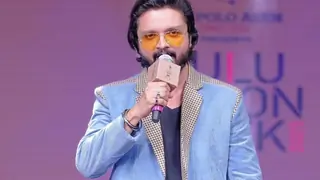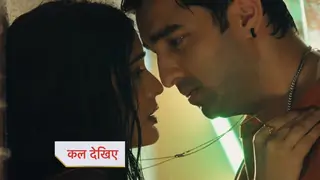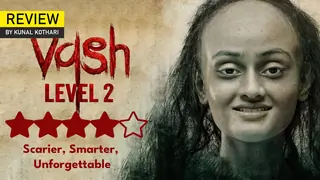To start with ; when Nisar Bazmi didn't have money to pay the singer for Khoj, M Rafi sahib charged only Re 1 for each song and sang his musical composition. In India, Nisa r Bazmi is best remembered for his composition of Rafi Sahaab's song: CHANDA KA DILTOOT GAYA HAI in a 1953 flick, Khoj. Unlike Nisar Bazmi who was a veteran music composer, there were many new music directors who were trying their luck in Bollywood film industry.They would
approach Rafi Sahaab and request him to sing for them as, in their opinion, if he
sang for them they would geta firm foot-hold in the film industry. Rafi Sahaab
would not only oblige them but to top it, he would gift to them his own earnings
that he received from producers for such songs.
In fact, he would send anonymous cheque to music directors who were going through bad times. This fact was divulged only after the sudden demise of Rafi Sahaab, when the cheque stopped
coming.
Similarly, had it not been for complete generosity,or some monetary
consideration or even "adjustments"of Rafi Sahaab we would have missed many of
his gems. Check out some of the following golden nuggets of the music directors
who could never make it into the big league: MAIN TOH TERE HASEEN KHAYAALON MEIN KHO GAYA from Sangram (1965) from the trio of Lala-Assad-Sattar;O GORI ZULM KARE from Main Aur Mera Bhai (1961) to name just one of C.Arjun's compositions; DAULAT
KE JHOOTE NASHE MEIN HO CHOOR from Oonchi Haveli (1955) ? Music Pandit Shivram;
TUM POOCHHTE HO ISHQ BALA HAI KE NAHIN HAI from Naqli Nawab (1962) ?Music Babul; PYAAR KI RAAH DIKHAA DUNIYA KO from Lambe Haath (1960)and MAANA MERE HASEEN SANAM from Adventures of Robin Hood(1965) to name just two of G.S. Kohli's breezy compositions; NIGAAHEN NA PHERO from Black Prince ?Music Dulal Sen;MUJHE TUMSE MUHABBAT HAI from Bachpan (1963)-Sardar Mallik; or the melodious songs of Rafi Sahaab from CHA CHA CHA , and so on.
Mohammed Rafi, the playback singer who has been imitated the most, would often
agree to sing for the producers who couldn't afford him.
AAs recounted by Sapan-
Jagmohan over the Vividh Bharti Radio Station, one producer who was a die-hard fan
of Rafi Sahaabhad given the assignment of musical direction of his film to
Sapan-Jagmohan who,on their part, wanted to record a solo song in the voice of
some male singer other than Rafi,since they felt the producer would not be able
to afford Rafi Sahaab's fees.The producer, however, assured them that he would
somehow manage to arrange for the payment.So Rafi Sahaab was booked by them.
When Rafi Sahaab came promptly on the day and the time of recording he noticed a
worried look on the faces both the Music Directors and the Producer.It took
sometime and some courage to tell Rafi Sahaab that they were not in a position to
pay him once the recording of his song was over.They wanted to postpone the
recording till such time as they could get the amount to pay him.Hearing this,
Rafi Sahaab said: "Is that it? No problem".
As a rejoinder he adde "It wouldn't be me the other way around who would do the paying Na?" Thus making light of the situation for both producer and music directors,Rafi Sahaab
recorded the song.He wished them good luck for the film and departed without
taking any fee but "the eternal gratitude of the producer" and leaving behind
another great song: TERI AAWAAZ KI JADUGIRI SE.... from Teri Talash Mein (1968).
It cannot be contradicted that Rafi Sahaab rendered great support to Laxmikant-
Pyarelal during their initial struggling days and when he himself was at the
zenith in the film industry. Pyarelal dispels the notion that they got their
first break as the music directors because of Lata Mangeshkar.
She never recommended their names to any Producer or Director according to him.
Laxmikant-Pyarelal, who made their mark as music directors with Parasmani (1963)
had in fact recorded their first song with Rafi Sahaab,earlier than that,for
Chhaila Babu (which was released yearslater than Parasmani).
The song was: TERE PYAAR ME.N MUJHE GHAM MILAA.... Rafi Sahaab was so much moved by this compostion that he refused any payment for the song.It is also said that Rafi
Sahaab did not charge for his songs in Parasmani. Even for those great songs ofDosti (1964), it is said that Rafi Sahaab did not accept payment.But in keepingwith the traditions of accepting payment for professional singing, he just chargedthem One Rupee only.
In passing, it's said that the tune forone of the Dosti songs, CHAAHUNGA MAIN
TUJHE..was first made with a female singer in mind but the musical duo was told
that it would be Rafi Sahaab who would be singing their tune. The duo even
contemplated scrapping this composition but for Rafi Sahaab who prophesized its
success. How right he was when the same song won Rafi Sahaab the Filmfare Best
Playback Singer award, while the best music director award went to this musical
duo. On the aside, having witnessed the musical trends of the Sixties, I would
like to reiterate that the "Dosti Mania" or the craze was singularly due to the
great voice and pathos of Rafi Sahaab who rendered five of the six solo songs.
Laxmikant-Pyarelal never looked back after this.
In any case the movie, Dosti,was not the usual run- of- the- mill type of story involving a hero and a heroine and there is no situation as such in the movie where a female voice is required for that song.
As for the other story that the lyrics sounded to be more of
Aashiq and Maashooq (Lover and his Lass) type and therefore needed to be scrapped,
well, I wouldn't like to comment on that since this is not our subject here. The
bond of 'Dosti' (friendship) that was created between them and Rafi Sahaab lasted
till the last breath of Rafi Sahaab when they recorded the Aas Paas song in 1980.
If there would have been no CHAAHUNGA MAIN TUJHE...,the Sangam song,YEH MERA
PREM PATRA PADHKAR...which was also by Rafi Sahaab under the baton of Shankar-
Jaikishen, would have easily won the Filmfare award.
For For Pyarelal, there was never a greater male singer than Rafi Sahaab.True.But it was also the innate charitable desire, efforts, and good wishes of Rafi Sahaab for the new team of
music directors that led to their triumph.It was this song that put Laxmikant-
Pyarelal in the big league of music directors.No doubt, then, that the duo
considered Rafi Sahaab "Pita Samaan" or a father-figure with whose passing away
the very life went out of their music.In their words: "Laxmikant-Pyarelal ke
Sangeet Se Jaan hee Chali Gayi Hai."
The musical duo of Laxmikant-Pyarelal had rightly observed that Rafi Sahaab gave
without thinking of returns. According to them: "Rafi Sahaab Ne Har Dukh Mein
Hamara Saath Diya." That is, he helped them at every stage of grief. Pyarelal
recollects how once during their bad patch his father had taken him to Rafi
Sahaab's house for some monetary help. Pyarelal also recollects that he owed
Rs.500 to Rafi Sahaab and when during the recording of Rafi-Lata duet, Yeh Dil
Tum Bin Lagta Nahin (from Izzat ? 1968) he reminded him about it, Rafi Sahaab did
not "recall" giving any money to him.
Giving without thinking was indeed the hallmark of Rafi Sahaab's generosity and large-heartedness.
There were also times when Rafi Sahaab did not charge any money not because of the
inability of the music director to pay, but because of a long- standing
friendship. Therefore, when the producer-director-music director Kishore Kumar
(the popular singer) approached Rafi Sahaab for a song or two in his Chalti Ka
Naam Zindagi (1981 release) Rafi Sahaab refused to take any payment. He just
charged a token of One Rupee.
That was not a solitary instance of this category. Whenever Rafi Sahaab liked
any musical composition which he rendered in his rich voice, he would refuse
payment. Habba Khaatun isan unreleased film where Naushad Ali composed music.
This film also happens to be the last film where both Naushad and Rafi Sahaab
worked together. So much was Rafi Sahaab moved by the musical composition, that
he refused any payment for his work.
The song happened to be: JIS RAAT KE KHAWAAB AAYE.
Naushad Ali recounts how S.U. Sunny the Producer of Kohinoor(1960 release)
wanted MADHUBAN ME.N RADHIKA NAACHE RE, composed in Raga Hamir, scrapped on the ground that it was a difficult composition. Rafi Sahaab picked up the gauntlet,
prophesying that the song would be a hit. Rafi Sahaab was ready to forgo his
singing fee, but stated that he would charge double the amount if the song proved
a hit. Indeed that song proved a great hit. But true to his nature, Rafi Sahaab refused the
monetary payment by saying that he had received the payment by way of rewards from
the music lovers who had made this song a great hit.
Rafi Sahaab was the only man in the film industry who did not remind the filmproducers but rather "forgot" about his dues when their films did not do well.He even returned his fee-amount in such instances.
Joy directed a movie called Humsaya which was released at the Maratha Mandir
Cinema in 1968.It had great music by O.P. Nayyar.One song especially stood out
from the rest: DIL KI AWAAZ BHI SUNN...It was a chartbuster from Rafi Sahaab.
Unfortunately, the film bombed at the box-office and Joy Mukherjee, who was also
the hero of that movie, ran short of money. On learning about the shortfall of
Joy Mukherjee, Rafi Sahaab discreetly visited his home to refund the fee of his
singing assignment. The former, however, refused to take back the money when Rafi
Sahaab said: "DIL KI AWAAZ BHI SUNN".
So overwhelmed was Joy Mukherjee that he took back the money.
Rafi Sahaab used to help producers in completing their shelved films. Once such
Movie was Pandit Aur Pathan which was released in 1977.
Once the respected personality of Telegu films and the maker
of Tyagaiah, Mr. Nagaiah, invited Rafi Sahaab to sing the 'Dohas'of Sant Kabir
for his venture, Bhakta Ramdas. This movie had been many years in the making
owing to financial straits of the producer. Rafi Sahaab recorded DIL KO HAMARE
DARSHAN DENA and KAAHE KA RONA for this movie. When his fee was given, Rafi
Sahaab not only returned the amount to Mr. Nagaiah, but also asked him if the
latter needed any financial help for completion of the movie. Rafi Sahaab knew
Mr. Nagaiah only from the Hindi screen version of Meera.
He had also paid for his own air-fare from Madras to Bombay.
Such was the magnanimity of Rafi Sahaab.
How Rafi Sahaab was propelled more towards the general good than seeking his own benefit finds echoes in his stand on the question of "royalty" for the songs.
This is the well-known issue that led to the rift between Rafi Sahaab and Lata Mangeshkar in the early Sixties.
This was not on a personal matter but was based on principles alone. The view of Rafi Sahaab was that once the singers were paid their remuneration there was no need for any royalty. Lata Mangeshkar was of the view that royalty must be earned by the singers in addition to their remuneration. Music Directors used to get royalty for their musical compositions, based on the number of records sold.(The vinyl records had entered India bigtime)Both the views were right; only their perspectives were opposing: One was from a spiritual point of view; the other was from the materialistic point of view. The relevance of this is that no matter what, Rafi Sahaab was always a giving person.
Otherwise, too, there was a positive outcome of this rift which lasted for about three years: This period saw the emergence of Suman Kalyanpur on the one hand; and recordings of more duets of Lata with Mukesh and Mahendra Kapoor. Asha Bhonsle, too, stood to gain when she was asked to sing duets with Rafi Sahaab.
Philanthopic Rafi
























